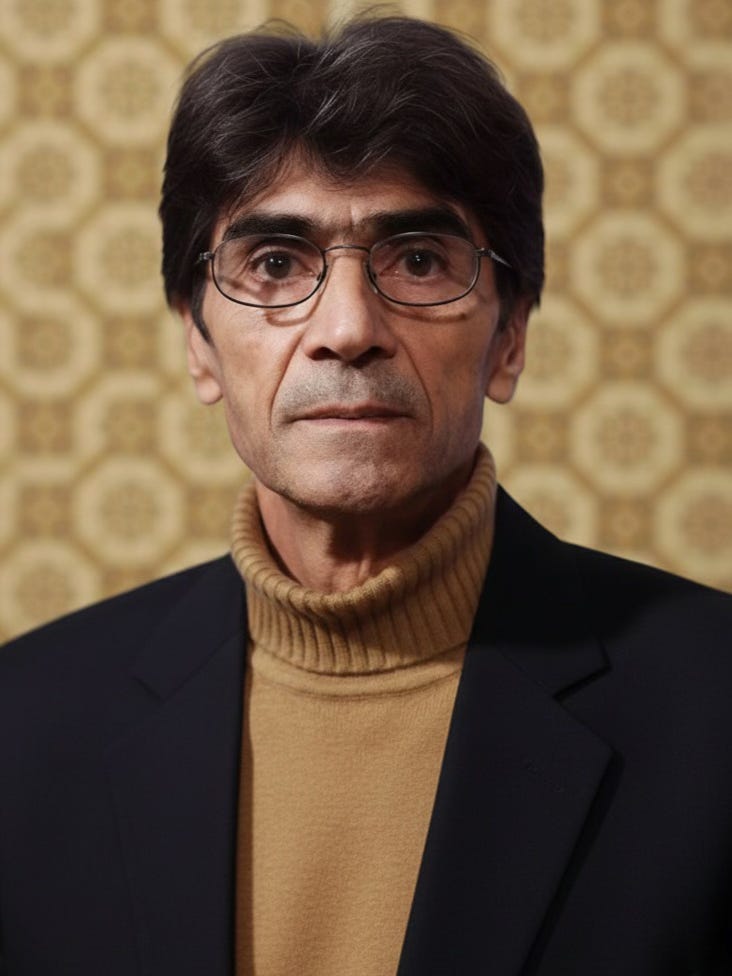Nasser Taghvai, one of Iran’s most respected filmmakers and a voice of conscience for generations of artists, passed away on October 14, 2025, at the age of 84. Born in 1941 in the southern city of Abadan, Taghvai grew up among the sounds of oil refineries, the humidity of the Persian Gulf, and the everyday struggles of working people—an environment that would later shape the emotional and social depth of his films. He was a storyteller who found beauty in truth and humanity in simplicity, a director whose career reflected both the triumph and tragedy of Iranian cinema.
Photo courtesy of Wikibeena / Wikimedia.
Unlike many of his contemporaries, Taghvai never studied cinema formally. He learned by watching, reading, and listening—immersing himself in world literature and film, but remaining deeply rooted in the culture of southern Iran. His early documentaries captured life as it was lived by ordinary people—their resilience, humor, and dignity. His first feature film, Tranquility in the Presence of Others (1972), was a bold examination of social repression and human fragility. It was quickly banned, a sign of the challenges that would follow him throughout his career. Yet it also established him as a filmmaker unafraid to confront uncomfortable truths.
Taghvai’s most celebrated film, Captain Khorshid (1987), based on Ernest Hemingway’s To Have and Have Not, transposed a Western classic to the Persian Gulf, transforming it into a story of moral struggle, loyalty, and resistance. The film received international acclaim and won an award at the Locarno International Film Festival, confirming Taghvai’s reputation as a master of adaptation and atmosphere. In his hands, cinematic realism became poetic; landscapes turned into moral spaces, and silence spoke louder than dialogue. His works portrayed fishermen, villagers, teachers, and dreamers—people often ignored by power but illuminated by art.
Taghvai’s influence was not limited to cinema. In the 1970s, he directed the television series My Uncle Napoleon (Dāyī Jān Nāpoléon), adapted from Iraj Pezeshkzad’s novel. The series became an enduring cultural phenomenon, its characters and humor still alive in Iranian collective memory half a century later. Through it, Taghvai captured the absurdities and tenderness of Iranian society with unmatched grace and irony. Even after the revolution, when political and cultural restrictions tightened, his commitment to honest storytelling never waned. His 2002 film Unruled Paper (Kāghaz-e Bi Khat), exploring the psychological landscape of modern family life, earned him the Hafez Award for Best Director and reaffirmed his creative vitality.
Yet behind his achievements lay decades of struggle. Taghvai often clashed with state censors and bureaucrats who tried to limit his artistic freedom. Many of his planned projects were blocked or left unfinished. In later interviews, he spoke openly of the “terrible censorship” that suffocated Iranian cinema and declared that he would not make films under such constraints. His silence in the last years of his life was not a sign of defeat but a quiet act of defiance. He chose dignity over compromise, remaining faithful to the principle that art must serve truth, not power.
Nasser Taghvai’s legacy stands as a testament to artistic integrity, courage, and devotion to truth. His films are few, but each bears the mark of moral clarity and human depth. He taught future generations that cinema is not only an art but a responsibility—a way to record the conscience of a nation and give voice to those often unheard. His influence continues through the countless filmmakers, writers, and viewers who found in his work a reflection of themselves and their country.
In a message following his passing, his wife, the actress Marzieh Vafamehr, wrote: “Nasser Taghvai, an artist who chose the difficulty of living freely, has earned his liberation.” Her words reflect the essence of a man who lived by his convictions. Taghvai was a filmmaker who refused to surrender to fear or convenience, a storyteller who believed that truth itself was a form of resistance. His life reminds us that art without freedom is hollow, and freedom without truth is meaningless.
From the perspective of the National Iranian American Council (NIAC), Nasser Taghvai represented the very spirit of Iran’s cultural resilience—the belief that art can transcend oppression and connect a nation to its better self. His voice reminded Iranians everywhere that integrity and creativity are inseparable, and that beauty and truth must walk hand in hand. NIAC honors his lifelong dedication to storytelling, his compassion for ordinary people, and his unwavering moral courage. His legacy will continue to inspire artists and advocates who strive for a freer, more humane Iran—one where truth, dignity, and art can flourish side by side.



